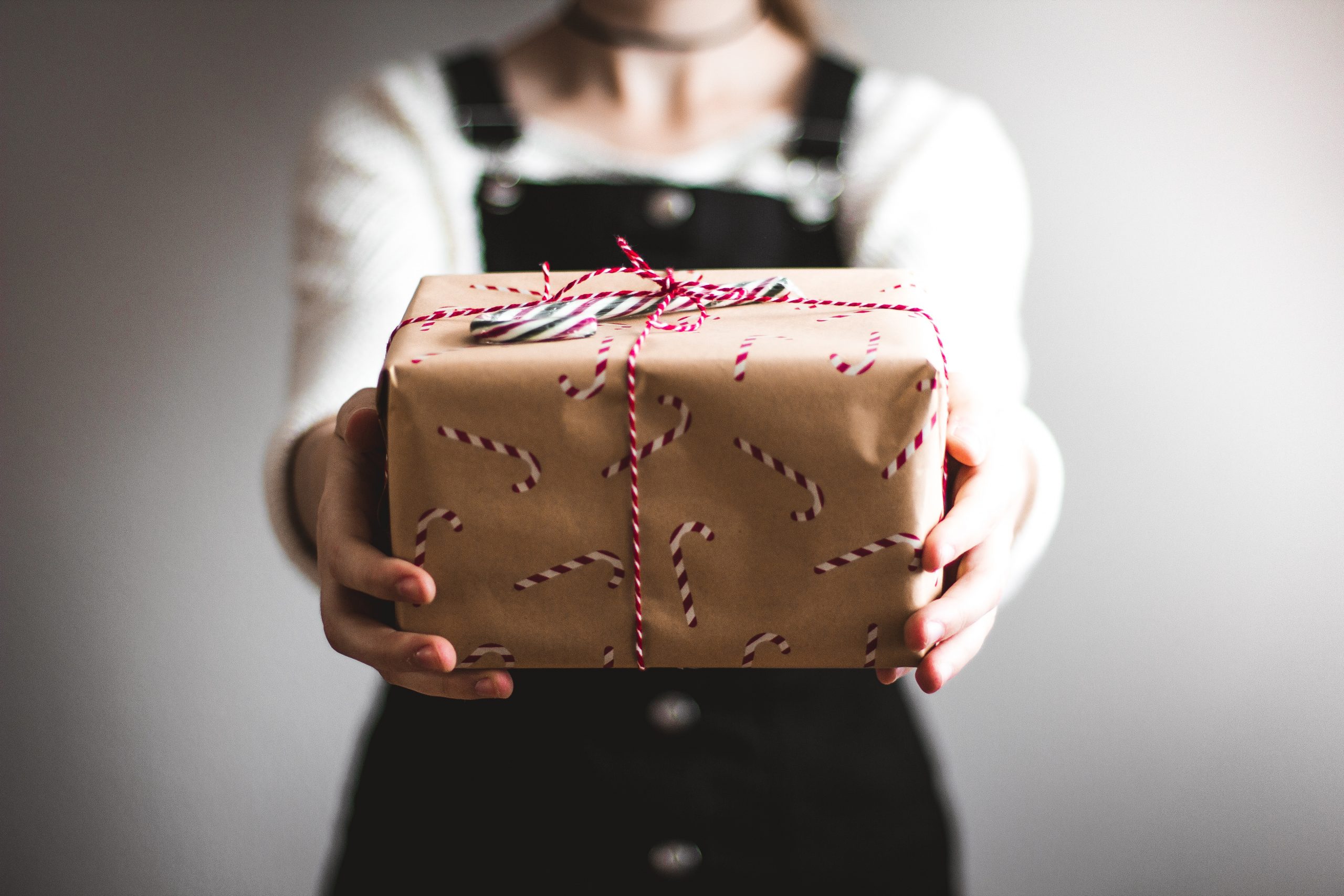25 sustainable Christmas switches
Dreaming of a green Christmas? Among the festive frenzy, it’s easy to forget about the climate impact of your celebrations. Whether you pride yourself on being a conscious consumer and want to make this Christmas the most sustainable yet, or you’re just looking for a few simple steps on the way to going green, here’s our ‘advent calendar’ of 25 Christmas green-living tips.

- Swap Black Friday for Green Friday. Last year, UK online shoppers spent £1.49 billion on Black Friday. This year, avoid the shops and get outdoors for a greener Black Friday.
- Choose donations or virtual gifts. There’s a whole range of organisations that make giving virtual gifts easy, including Send A Cow, where £5 can provide a family with chicks and eggs, and £9 can feed a child. Instead of presents, ask for – or give – these donations as environmentally friendly Christmas presents, and stop another person getting an un-wanted, unused present.
- Buy nature-friendly meat and vegetables. In the last few years, veg boxes have risen in popularity, making it easier than ever to buy organic food. For festive food, opt for local farm businesses like Riverford, Farm Wilder or Abel and Cole which uses 92% less plastic in boxes than supermarkets and only includes 100% organic or sustainably wild food.
- Reduce food waste. Planning your meals ahead is a great way to reduce food waste. If you end up with leftovers, get creative with your cooking; the BBC Food Leftover Guide is a good place to start (and if you go for food boxes, Abel & Cole and Riverford suggest genius recipes based on your leftovers).
- Donate to food banks. Our excessive Christmas eating habits have the same carbon footprint as a car travelling 6,000 times around the globe. On top of this, 230,000 tonnes of food waste is binned, which you can easily cut down on by donating your surplus to food banks.
- Switch to an ethical bank. Spending over Christmas in un-avoidable, but each pound you spend can help the planet rather than fund its destruction. Switch to ethical banks like Triodos, which has lent £6.5 billion to projects benefitting people and the planet
- Use zero-waste shops. This is one trend that hasn’t been bad for the planet. For your Christmas cooking, try buying oils, spices, nuts and milks from a zero-waste shop. Pebble magazine has a great list of the top UK zero-waste stores.
- Reduce your plastic use. If you don’t have a nearby zero-waste shop, try to cut down your plastic use in other ways. Buy vegetables that aren’t wrapped in plastic from local greengrocers, or take your own produce bag on shopping trips.
- Re-use wrapping paper. Every Christmas, 227,000 miles of wrapping paper is thrown away. You can contribute to cutting down this number (and to less trees being cut down) by re-using old wrapping paper. Didn’t save last year’s wrapping paper? Make it your mission to save it this year and buy recycled wrapping paper in the meantime.
- Buy second-hand or homemade goods. Consider sticking to homemade and second-hand gifts (as we at Greenhouse do every Christmas). Etsy is carbon off-setting all of its delivery – and as the first online shopping site to do so – it’s the perfect option for the less crafty. Consider also buying pre-loved gifts that tell a story, or vintage clothes from charity shops or apps like Depop.
- Research your brands. You can show your love for the planet by buying from B Corps or researching the brands you buy from to check their ethical and sustainable values. Check out Patagonia, Finistere and Pozu for fashion, and Lush, the Little Soap Company or UpCircle for beauty products. For alcohol lovers, buy Toast Ale, who brew their beer from surplus bread or Everleaf, who make non-alcoholic drinks perfect for those doing dry January.
- Buy locally. We’ve all been guilty of relying on the ease of online shopping, but deliveries over the Christmas period make up 5% of our yearly carbon emissions.
- Ditch the plastic tree. Whilst it’s best to re-use a plastic tree if you already have one, the Carbon Trust revealed artificial trees would have to be re-used 10 times to negate their carbon footprint, and their carbon footprints are ten times that of a real tree. So, if you’re not yet ready to ditch the tree completely, ditch the plastic for a more sustainable Christmas tree option.
- Buy organic Christmas trees. If you are going to buy a tree, make sure to buy as local as possible, or chose a for the Forest Stewardship County Council tree which are pesticide free and responsibly managed.
- Plant a tree instead. Bristol City Council, Woodland Trust, Bristol Tree Forum and Forest of Avon Trust, have teamed up to encourage companies to plant one tree per employee. Instead of buying a tree this year, why not virtually donate one for £10 and help capture carbon emissions.
- Buy sustainable presents. You can show your love to your families and friends and the earth at the same time by choosing presents that are sustainably and ethically sourced. The Giki Badges app lets you scan barcodes to find out for the sustainability of your items, meaning you can scan products in the supermarket before you buy them. Try looking out for the RSPO label for sustainable palm oil on toiletries and sweet treats!
- Cut back on red meat. A good way to help you have a healthier Christmas, as well as a greener one. Switch red meats for organic poultry, or try out some veggie (or vegan) meals.
- Watch your energy use. As beautiful as Christmas lights look, leaving them on overnight isn’t good for the environment, and definitely isn’t good for your energy bills. With Christmas being a hot spot for energy use, remember to turn lights off when you leave the room to reduce your negative environmental impact.
- Switch to renewable electricity. Want to make an even bigger step towards sustainability? Power your Christmas tree lights with renewable electricity by switching to 100% renewable electricity company, Good Energy.
- Make decorations. If you already have Christmas decorations, resist the urge to buy more. This will help reduce plastic waste – as well as your post-Christmas clutter and time spent cleaning up broken rogue decorations! For more sustainable Christmas decorations, make your own or buy edible decorations.
- Swap decorations with friends. If DIY isn’t your thing, why not try switch with friends so you get new decorations, without the negative impact or any money spent!
- Don’t forget your dogs. Globally, pet cats and dogs consume close to 23 billion tons of meat each year, contributing to the global carbon emissions from meat production. If you want to buy your pets a treat, choose Yora Insect Dog Food, a sustainable pet food brand.
- Use public transport. Each Christmas the UK travels 6 billion miles around the UK combined. Travelling for Christmas? Use public transport when possible, to help cut those carbon emissions.
- Switch to a donation calendar. Swap your advent calendar for a donation calendar like Advent of Change’s advent calendar where each door reveals a donation to one of 24 different charities. If you’re thinking of setting a New Year’s resolution to be more active, you can get a headstart by downloading Travel West’s #ActiveAdvent Calendar.
- Recycle Christmas cards. Each Christmas, enough cards are bought to cover the earth’s circumference 500 times, with 1 billion of those being binned. Cut down on paper waste by switching to recyclable paper cards, making them yourself, sending e-cards, or giving your Christmas wishes over the phone.
Greenhouse PR works with organisations and leaders who are pioneering climate action. Whether it’s food, fashion, finance or farming, if you’ve got a great story and need our help to tell it, get in touch with the Greenhouse team on 0117 214 1250 or email info@greenhousepr.co.uk.


